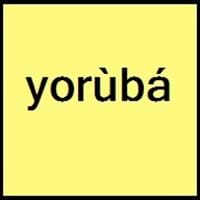Swahili vs Yoruba
- Swahili language has borrowed many words from Arabic language.
- The oldest written scripts in swahili language were found in 18th century.
- One of the largest African ethnic groups is Yoruba in south of Sahara Desert.
- In Yoruba language, same combination of vowels and consonants have different meanings depending on the pitch of the vowels, so it is tonal language.
Swahili and Yoruba Language History
Comparison of Swahili vs Yoruba language history gives us differences between origin of Swahili and Yoruba language. History of Swahili language states that this language originated in 6th century whereas history of Yoruba language states that this language originated in 4 BC. Family of the language also forms a part of history of that language. More on language families of these languages can be found out on Swahili and Yoruba Language History.
Swahili and Yoruba Greetings
People around the world use different languages to interact with each other. Even if we cannot communicate fluently in any language, it will always be beneficial to know about some of the common greetings or phrases from that language. This is where Swahili and Yoruba greetings helps you to understand basic phrases in Swahili and Yoruba language. Swahili word for "Hello" is Habari or Yoruba word for "Thank You" is e dupe. Find more of such common Swahili Greetings and Yoruba Greetings. These greetings will help you to be more confident when conversing with natives that speak these languages.
Swahili vs Yoruba Difficulty
The Swahili vs Yoruba difficulty level basically depends on the number of Swahili Alphabets and Yoruba Alphabets. Also the number of vowels and consonants in the language plays an important role in deciding the difficulty level of that language. The important points to be considered when we compare Swahili and Yoruba are the origin, speaking countries, language family, different greetings, speaking population of these languages. Want to know in Swahili and Yoruba, which language is harder to learn? Time required to learn Swahili is 36 weeks while to learn Yoruba time required is 30 weeks.





